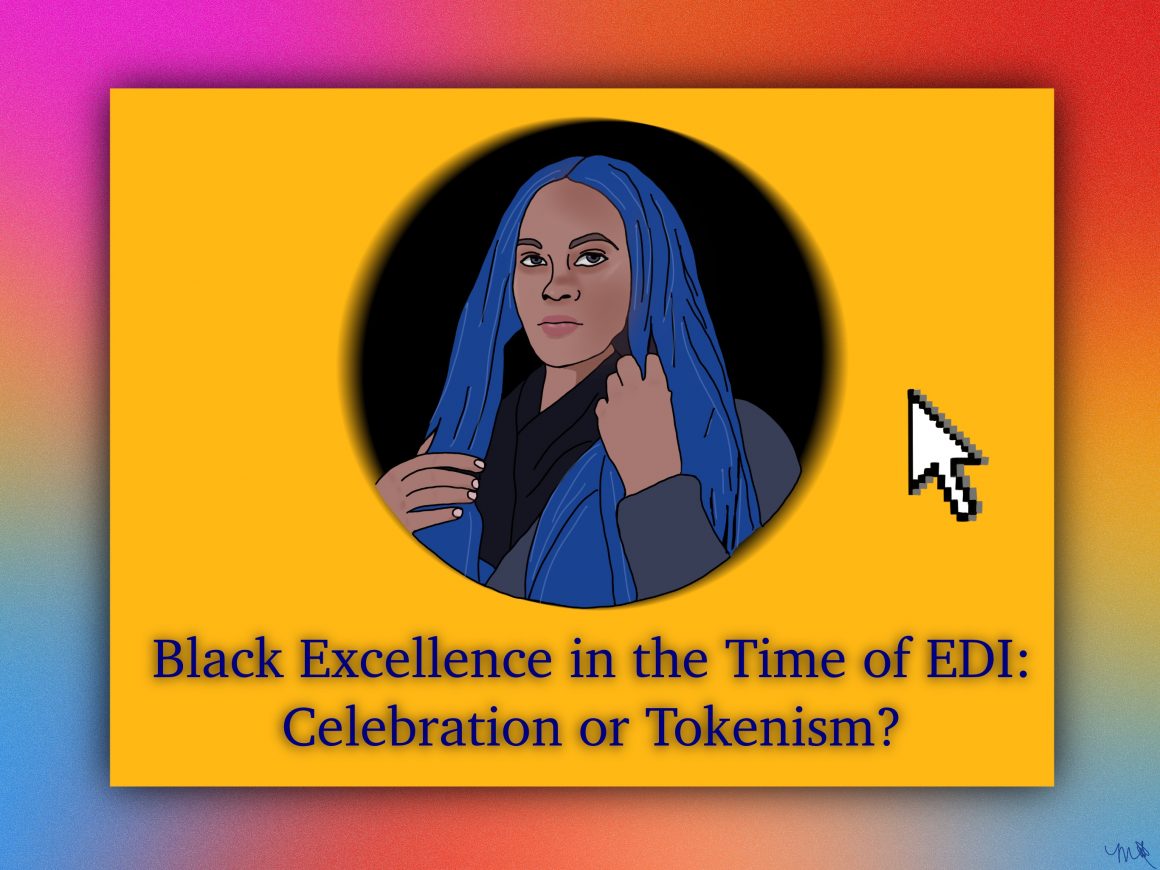
Adora Nwofor talks Black excellence in the time of EDI
By Enobong Ukpong, March 3 2022—
What does Black Excellence mean in the time of Equity, Diversity and Inclusion (EDI)? Who gets to define excellence, and how is that affected by the rising consciousness of social justice issues such as the Black Lives Matter movement? These are questions that will be explored in “Black Excellence in the time of EDI: Celebration or Tokenism,” an upcoming webinar presented by the Faculty of Arts Equity, Diversion, and Inclusion Committee on March 3.
The Gauntlet had the opportunity to talk with Adora Nwofor, the key speaker for this webinar, President of Black Lives Matter YYC as well as a comedian. As someone who describes herself as “born, raised and still living that racism dream in Calgary, Alberta,” she has had plenty of experience and research on anti-Blackness and how to combat it.
“I want to talk about the idea of Black excellence while we are still in a time of Black people being marginalized beyond anything that should have ever happened,” said Nwofor. “What is the idea of Black excellence when the world is still saying we need to do things like equity, diversity, and inclusion?”
Nwofor will be diving into why the notion of “Black excellence” even exists and the impact EDI initiatives has had on this concept.Nwofor believes that many EDI initiatives that were implemented in the wake of the 2020 Black Lives Matter protests were simply performative.
“Quite frankly, Calgary is the third most diverse city in Canada. So do we need diversity? Inclusion does not help anyone if they don’t have access to power. And so bringing a whole lot of people to the table is ridiculous. It just means that there are lots of people at the table. Does that mean that all those voices are heard?” said Nwofor.
Finally, about equity, she stated, “Equity, quite frankly, means that more access, more support and more acceptance should be given to folks who are marginalized, and that is not happening.”
Nwofor notes that another sign that these conversations are performative is that they tend to be contained to Black History Month and are noticeably absent during any other time of the year.
“I see folks scrambling to include people on January 28, and then February 28, it’s done. That is not the intention of EDI. [Equity, diversity and inclusion] are ideas that people have been talking about for at least a decade, if not two. But applying them? Nobody’s doing it.”
Nwofor believes that Black students, in particular, need someone to speak about these things. “The reason why racism works so well is because these ideas are labelled as ‘extreme’. They don’t hear anyone saying these things.”
She notes that she has personally faced pushback for speaking out on these topics, often finding that people are uncomfortable discussing racism.
“I just want to thank Black folks for being Black folks, and still being here,” said Nwofor. “And I would love if it could be that. Not just five or ten of us, but thousands of us on a regular basis, enjoying our lives and thriving,” She said as her closing message.
More events hosted by the Faculty of Arts Equity Diversity and Inclusion Committee can be found here.
